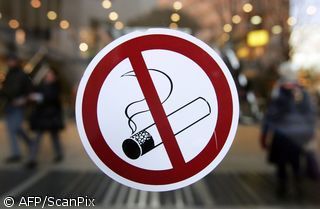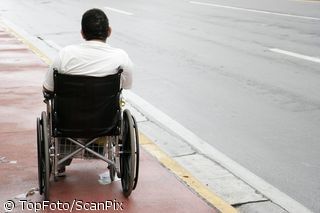Touted by the East German leadership as a barrier against "fascist provocation," the Wall was really an attempt to stop waves of skilled workers and educated people leaving a repressive state
Published:
10 November 2004 y., Wednesday
Touted by the East German leadership as a barrier against "fascist provocation," the Wall was really an attempt to stop waves of skilled workers and educated people leaving a repressive state. Around 3 million fled between 1945 and 1961, when the Wall went up. In time, it became etched in the Western consciousness as a symbol of inhumanity. More than 100 people were picked off by border guards while trying to escape; dozens of others were killed by mines.
However, by November 9, 1989, deep political shifts had prepared the ground for an earthquake. Leader Erich Honecker had been forced to resign and 4 million people had demonstrated for democracy. On that momentous day, the government's spokesman Guenther Schabowski announced that East Germans could go to West Germany if they applied for a visa.
Within minutes, people swarmed around the wall's border posts in what amounted to a siege. At midnight, they broke through to West Germany. That sounded the death knell for the Cold War and set the stage for German reunification a little more than a year later. But 15 years on, a very different kind of mass mobilisation took place. The demonstrations in Leipzig this August highlighted the economic plight of the former East German regions, where unemployment is double that of the western part.
When the old regime collapsed, many skilled workers found themselves on the wrong side of supply-and-demand economics.
Šaltinis:
euronews.net
Copying, publishing, announcing any information from the News.lt portal without written permission of News.lt editorial office is prohibited.
The most popular articles
 Ensuring that women are protected from physical, sexual or psychological abuse if they flee abroad is what lies behind the proposed European Protection Order.
more »
Ensuring that women are protected from physical, sexual or psychological abuse if they flee abroad is what lies behind the proposed European Protection Order.
more »
 Remnants of Tropical Storm Agatha dumped more rain across Central America, killing at least 73 people in the region, and forcing scores of others to flee their homes.
more »
Remnants of Tropical Storm Agatha dumped more rain across Central America, killing at least 73 people in the region, and forcing scores of others to flee their homes.
more »
 Ninety-three-year old Lim Guan Siew looks back, with regret, on her experience of the long-dispelled Chinese custom of foot-binding.
more »
Ninety-three-year old Lim Guan Siew looks back, with regret, on her experience of the long-dispelled Chinese custom of foot-binding.
more »
 Ahead of the 2010 No Tobacco Day (Monday 31st May), the European Commission unveils the results of a Eurobarometer survey which shows that a strong majority of EU citizens support stronger tobacco control measures.
more »
Ahead of the 2010 No Tobacco Day (Monday 31st May), the European Commission unveils the results of a Eurobarometer survey which shows that a strong majority of EU citizens support stronger tobacco control measures.
more »
 Enviromentalist and endurance swimmer Lewis Pugh puts his body to the test in thin air and cold water to highlight shrinking glaciers in high mountain ranges.
more »
Enviromentalist and endurance swimmer Lewis Pugh puts his body to the test in thin air and cold water to highlight shrinking glaciers in high mountain ranges.
more »
 It’s a dog’s life for the 1,500 unwanted strays who spend their days in a slum-like shelters in Brazil’s southern city of Caxias do Sul.
more »
It’s a dog’s life for the 1,500 unwanted strays who spend their days in a slum-like shelters in Brazil’s southern city of Caxias do Sul.
more »
 Three resolutions on the situation in Thailand, the pre-election climate in Burma and religious freedom in Pakistan were adopted by the European Parliament in Strasbourg on Thursday.
more »
Three resolutions on the situation in Thailand, the pre-election climate in Burma and religious freedom in Pakistan were adopted by the European Parliament in Strasbourg on Thursday.
more »
 Growing numbers of children enroll in kung-fu schools to learn self-defense techniques after a series of school attacks in recent weeks spark wide-spread concern in China.
more »
Growing numbers of children enroll in kung-fu schools to learn self-defense techniques after a series of school attacks in recent weeks spark wide-spread concern in China.
more »
 Homosexuality in the military can be a thorny issue around the world, with gay and lesbian soldiers often hiding their sexual preference out of fear.
more »
Homosexuality in the military can be a thorny issue around the world, with gay and lesbian soldiers often hiding their sexual preference out of fear.
more »
 European Commission Vice-President Viviane Reding will urge EU Member States to swiftly ratify the UN Convention on the Rights of Persons with Disabilities during a May 19 Ministers’ meeting in Zaragoza, Spain.
more »
European Commission Vice-President Viviane Reding will urge EU Member States to swiftly ratify the UN Convention on the Rights of Persons with Disabilities during a May 19 Ministers’ meeting in Zaragoza, Spain.
more »